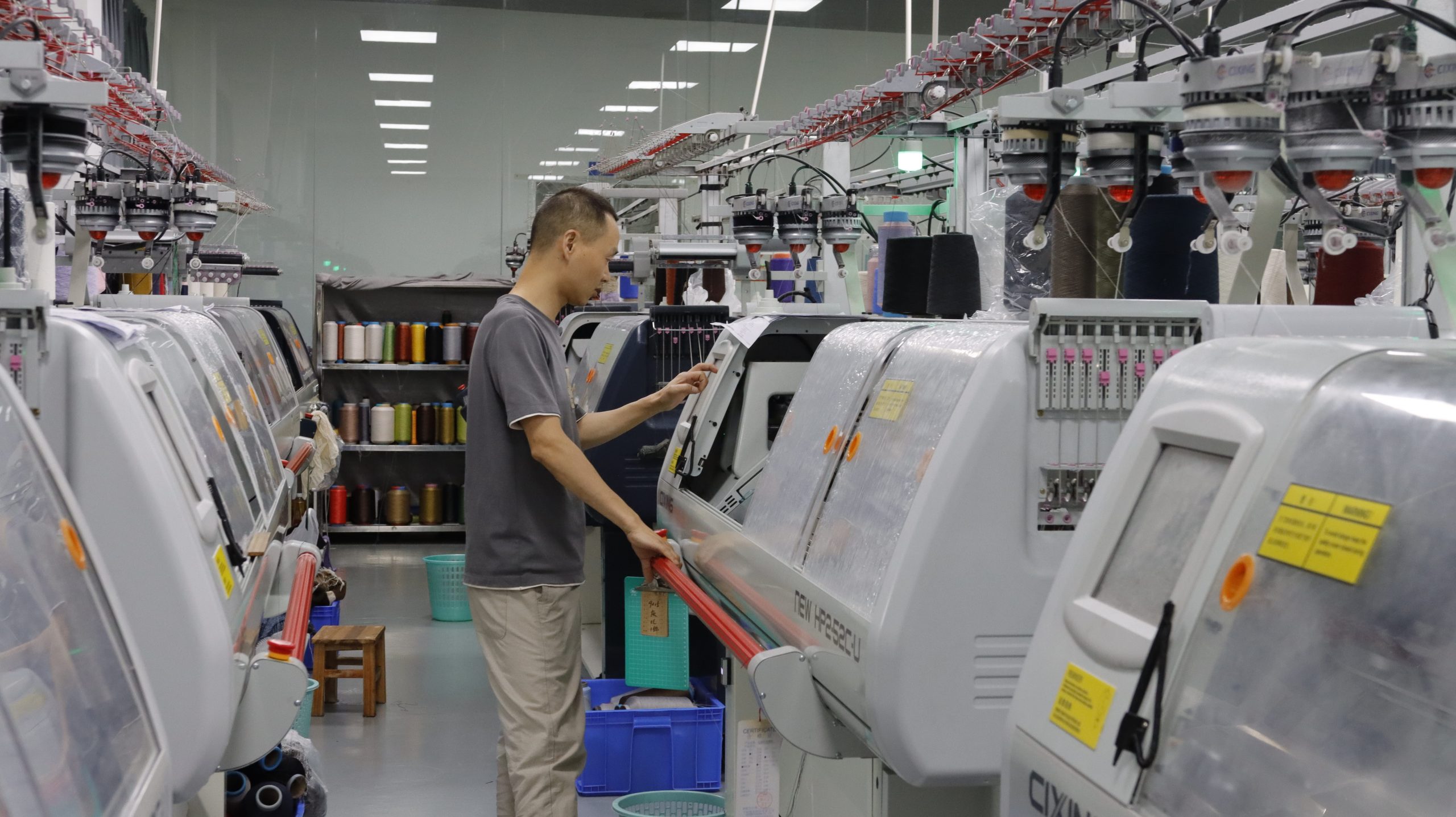Duurzame certificering
Duurzaamheidscertificering en -labeling zijn niet alleen een eer voor truifabrikanten, maar ook een belangrijke manier om aan klanten en de wereldgemeenschap te laten zien dat zij zich inzetten voor duurzame productie. Deze certificeringen en labels beloven een reeks principes, van milieubescherming tot sociale verantwoordelijkheid, en zorgen voor traceerbaarheid en geloofwaardigheid in de hele productieketen.
Een veel voorkomende certificering is “Eerlijke handel, “which emphasizes a manufacturer’s commitment to worker rights and community well-being. By becoming Fair Trade certified, manufacturers commit to paying fair wages, providing a safe and healthy working environment, and supporting community projects. This certification not only helps to improve the quality of life of workers, but also enhances the transparency of the production process and ensures the legality and fairness of the production process.
Organic certification
In addition, “organic certification” is een ander belangrijk kenmerk, vooral voor fabrikanten die organische vezelmaterialen gebruiken. Biologische certificering is een certificeringsmechanisme voor landbouw- en voedselproductieprocessen dat specifieke biologische landbouwnormen en -praktijken volgt. Het zorgt ervoor dat producten worden geproduceerd, verwerkt, verpakt en gedistribueerd in overeenstemming met een reeks strikte biologische productienormen, waaronder het gebruik van organische meststoffen, de afwezigheid van chemische en synthetische pesticiden en het naleven van duurzame landbouwpraktijken. Biologische certificering zorgt ervoor dat de hele toeleveringsketen, van boerderij tot eindproduct, voldoet aan de biologische landbouwnormen, vermijdt het gebruik van chemische pesticiden en synthetische chemicaliën en helpt de negatieve gevolgen voor het milieu te verminderen. Biologische vezels zijn over het algemeen milieuvriendelijker en ook beter voor de gezondheid van de drager, omdat er geen schadelijke stoffen achterblijven.
Global Organic Textile Standard
Another highly regarded certification is the Global Organic Textile Standard (GOTS), which is one of the most widely used organic textile certifications in the world. GOTS was developed by a multi-stakeholder group of organic textile industry experts from around the world. The standard applies to the processing and production of textiles, including spinning, weaving, dyeing, finishing, manufacturing and packaging. GOTS requires that all chemicals used in textile production meet strict environmental standards, including the cultivation and harvesting of organic fibers, as well as social responsibility requirements in the production process, such as labor rights and working conditions.
GOTS is een wereldwijd erkende standaard voor biologische textielproductie die consumenten helpt textielproducten te identificeren en selecteren die aan de milieunormen voldoen. Het omvat de gehele levenscyclus van een product, van de biologische teelt van grondstoffen tot de productie en verpakking van het eindproduct.
GOTS-certificering garandeert biologische productie, milieuvriendelijk verven en verwerken van de vezels, evenals naleving van maatschappelijk verantwoorde normen. Fabrikanten verkrijgen een GOTS-certificering om de geloofwaardigheid van duurzaamheid aan hun producten toe te voegen, aangezien de GOTS-certificering zich niet alleen richt op de vezel zelf, maar ook op het hele productieproces.
Kortom, duurzaamheidscertificering en -labeling zijn een belangrijke manier voor truifabrikanten om hun inzet en inspanningen op het gebied van duurzaamheid aan de consument te communiceren. Deze certificeringen en labels zijn niet alleen milieuvriendelijk, maar dragen ook bij aan het verbeteren van het welzijn van werknemers en vormen daarmee een positief voorbeeld voor de ontwikkeling van de duurzame mode-industrie. Door gecertificeerde en gelabelde fabrikanten te kiezen, kunnen consumenten ook deelnemen aan inspanningen om duurzaamheid te ondersteunen en bij te dragen aan een duurzamere toekomst.

 English
English Deutsch
Deutsch Français
Français Italiano
Italiano Español
Español Русский
Русский Polski
Polski Nederlands
Nederlands Svenska
Svenska

